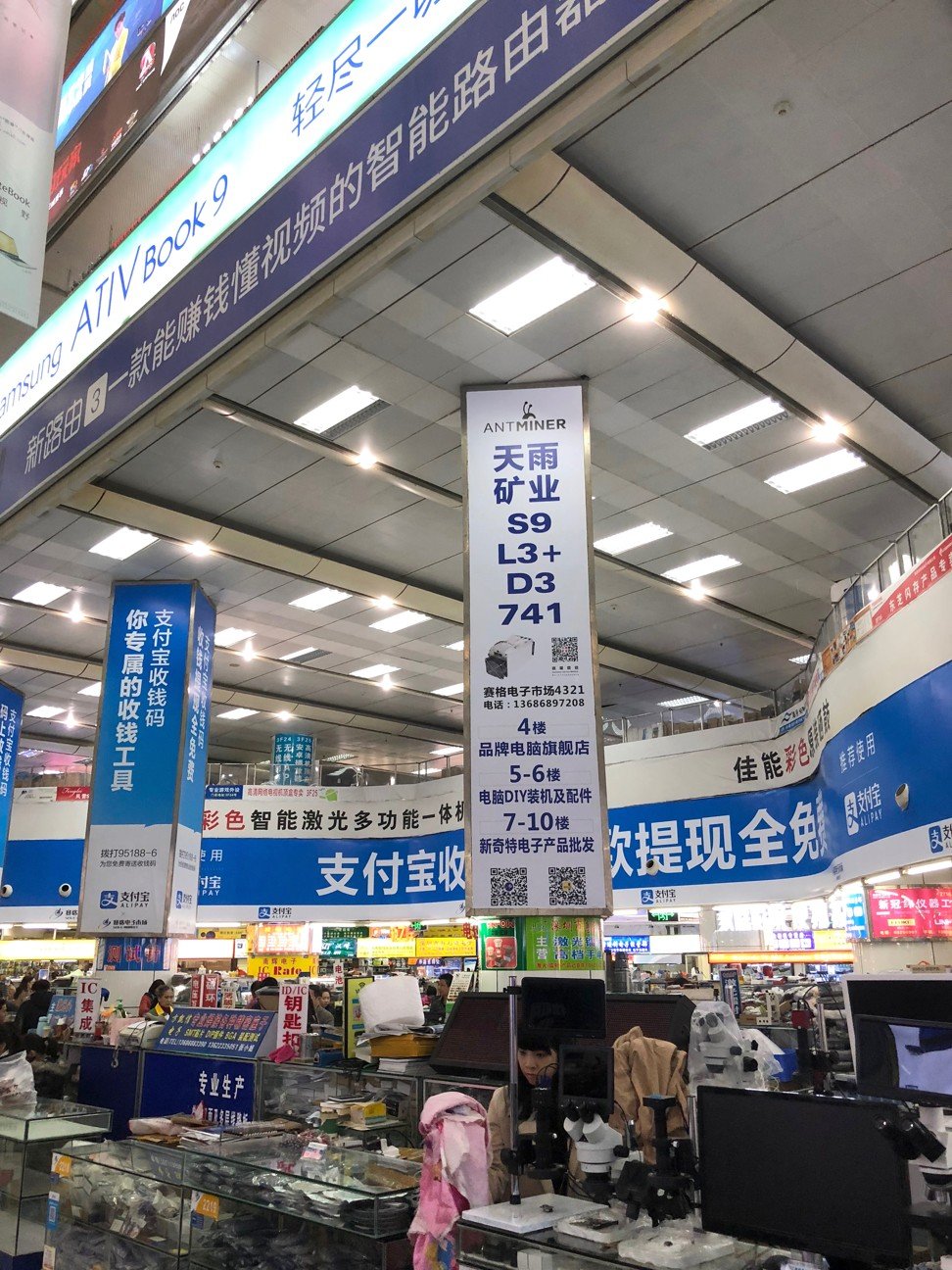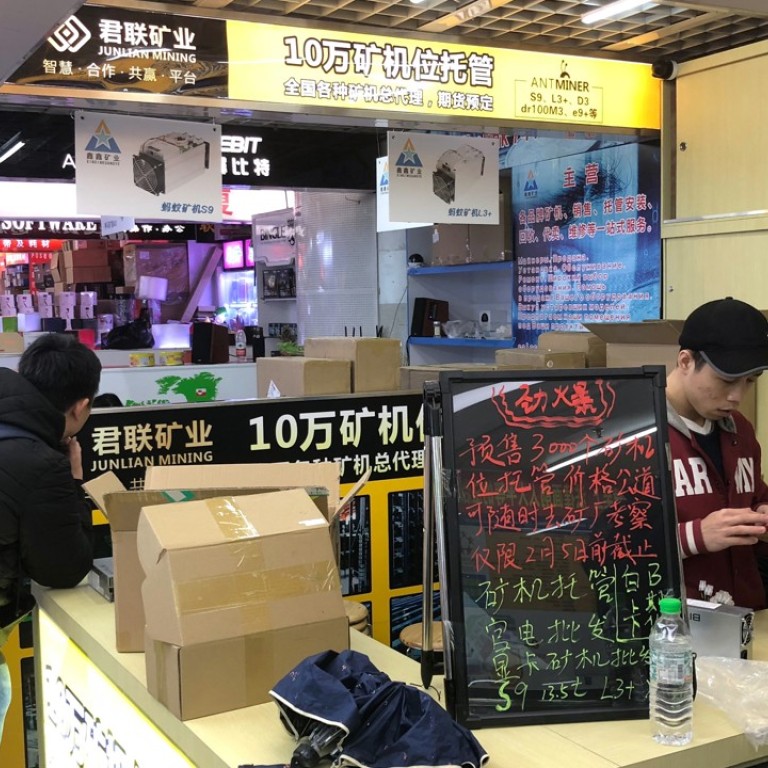
The Chinese bitcoin mining machine sellers immune to the cryptocurrency crackdown
Buyers of China-made bitcoin mining hardware come from Russia and India despite Beijing’s clampdown on trading, mining farms and payment channels
For three days, “Alex”, a 38-year-old businessman from Russia, combed central Shenzhen looking for China’s best prices on bitcoin equipment.
But after comparing those of 30 different retailers in one of the world’s liveliest electronics marketplaces, he still could not decide what to buy.
“It’s not just about the price,” Alex said, scribbling price information in his notebook. “It’s about how to choose a real retailer [that I trust].”
Six months ago, when Alex bought 200 pieces of equipment in Moscow for the bitcoin mining business he intended to start, prices in the Russian capital were 20 per cent higher than in China.
Here in Shenzhen, it was a different story: there simply were too many small mining-machine retailers from which to choose.
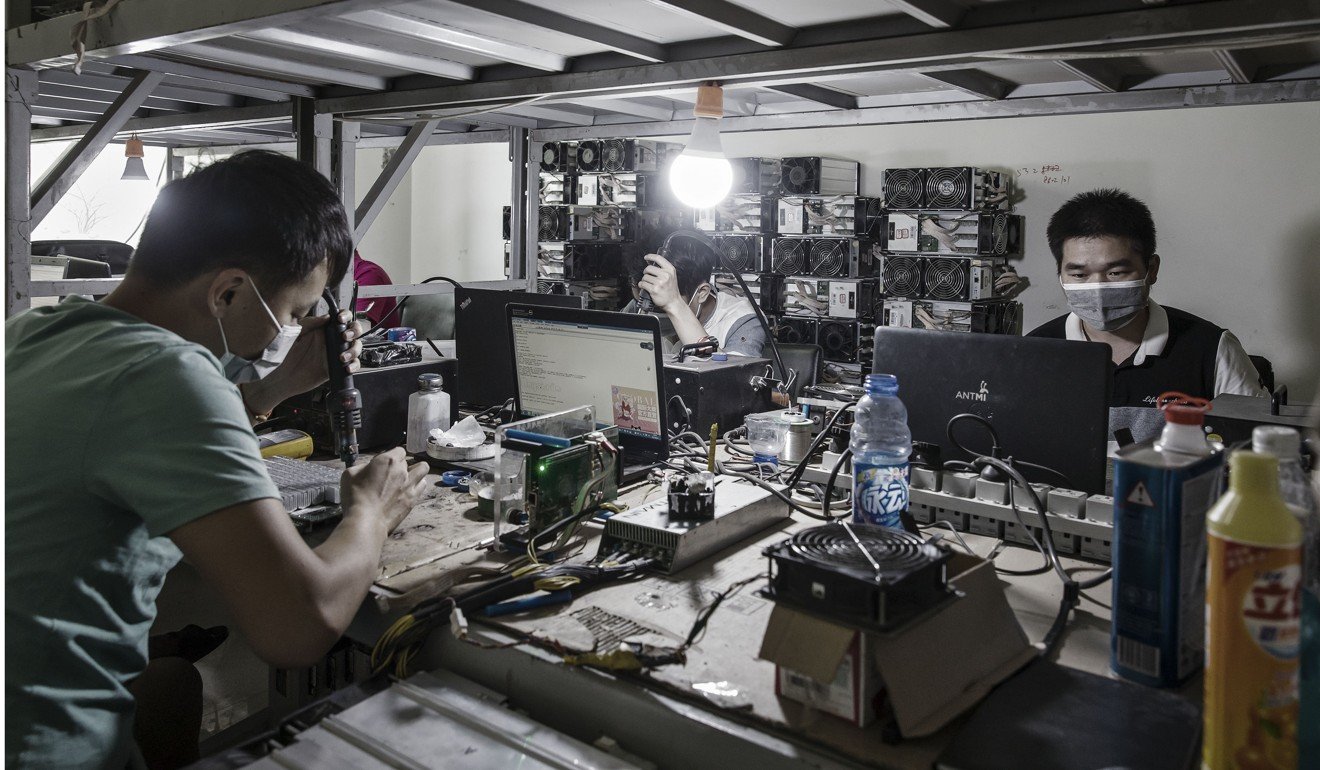
While a crackdown launched by Chinese financial regulators on bitcoin – shutting down mainland bitcoin exchanges, ordering local governments to clean up mining farms and freezing payment channels for cryptocurrency transactions – has hurt bitcoin demand in China, it has barely affected suppliers of made-in-China mining hardware.
And that’s amid high volatility in cryptocurrency prices.
Bitcoin hit a record high when it topped US$19,850 in mid-December, then tumbled rapidly, falling below US$12,000.
The rapid declines are partly tied to worries about regulation, as well as anxiety provoked by high-profile raids and thefts. Bitcoin was worth US$8,470 as of Friday, according to the Coinbase exchange.
Alex said that for 15 years he made two or three visits to China each year to buy toys and sell them in Russia. But this trip was the first to buy machines configured for producing bitcoin, the world’s most popular cryptocurrency.
Bitcoin mining refers to the idea that bitcoin exists in a protocol’s design – just as gold exists underground before it is dug up, according to Coindesk, a news website specialising in bitcoin and digital currencies.
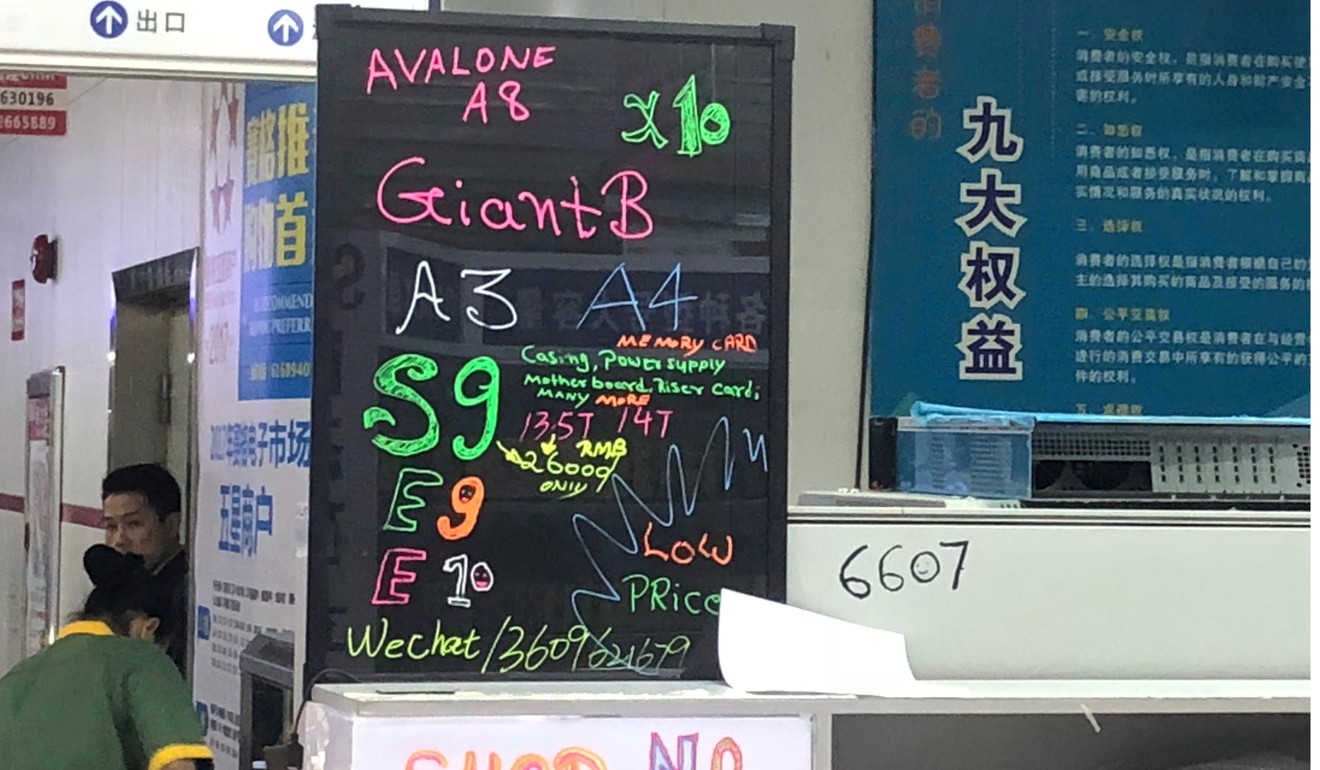
The bitcoin protocol stipulates that 21 million bitcoin will exist at some point. What “miners” do is bring them out into the light, a few at a time.
They get to do this as a reward for creating blocks of validated transactions and including them in the blockchain.
Inside SEG Plaza in Huaqiangbei, an electronics manufacturing hub in Shenzhen, shoppers can find vendors of mining machines scattered between the fourth and sixth floors in spaces originally occupied by sellers of computer components.
One mining shop that advertised a one-stop service covering everything from selling to fixing mining equipment had a Russian translation at the bottom of its ad. Russians dominate the list of foreign customers, along with Indians and other Europeans, and most pay in cash.
Some retailers even sell spots in server farms, charging for electricity used in mining.
Mining is integral to bitcoin because of its role in keeping the network secure and stable. Miners donate computational power to solve maths problems and earn the cryptocurrency as a reward.

But bitcoin’s design increases the difficulty of mining it. The challenge increases by about 8 per cent every 13 days as more bitcoin are unearthed until the cap of 21 million is reached. To date, miners have dug out more than 16 million bitcoin, according to Blockchain.info.
Over time, mining tools have also been revolutionised from personal computers into specialised machines installed with advanced chips. This chips are known as Application Specific Integrated Circuit (ASIC), which have more computational power and require less electricity than standard chips.
Despite the decline in mainland bitcoin trading, China still accounts for more than two-thirds of the world’s mining power, partly because its companies are the main suppliers of ASIC machines.
Popular models include the AntMiner S9 made by Beijing-based Bitmain Technologies and the Avalon 6 developed by Hangzhou-based Canaan.
An AntMiner S9, with a mining speed of 13.5 trillion hashes per second, costs more than 14,000 yuan (US$2,320, HK$17,369), according to Bitmain’s website.
But ordering one directly from the company is difficult because products – offered in limited online sales – are snapped up in seconds.
Demand allows vendors to sell well above the price listed on the website. Vendors at SEG Plaza have sold AntMiner S9s for as much as 26,000 yuan, taking in a profit of 50 to 500 yuan on each machine. Prices vary, depending on the distributor or reseller.
An AntMiner S9 can mine 0.0013 bitcoin per day, or at about US$11 based on present trading prices. It would take more than 900 days of round-the-clock computing in rural China for the machine to pay for itself, according to BTCfans.com.
Both Bitmain and Canaan develop their own ASCI chips. They also outsource production to major chip making companies such as Taiwan Semiconductor Manufacturing Co (TSMC).
Canaan spent more than 15.2 million yuan, or a quarter of its operating costs, on research and development, during the first four months of last year.
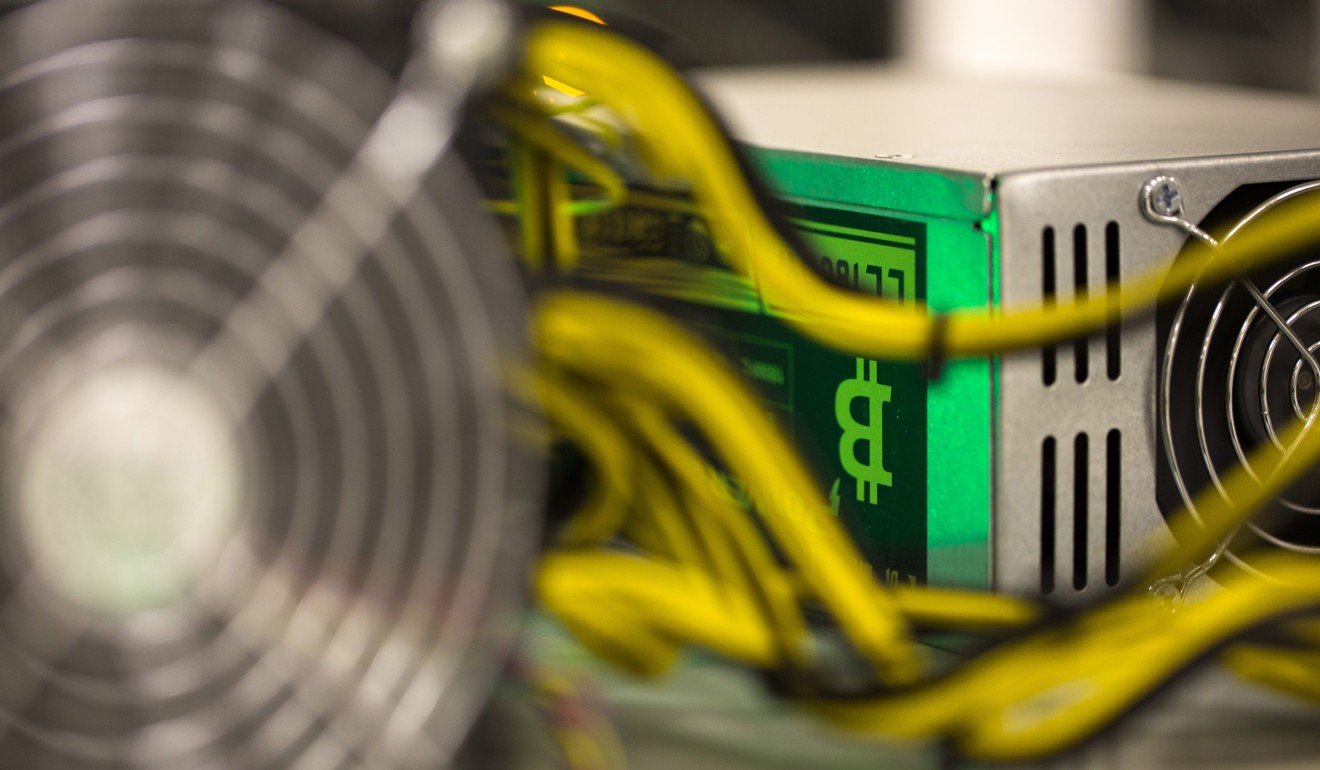
In 2016 alone, it spent 21.3 million yuan on R&D, according to a filing with the National Equities Exchange and Quotations, China’s version of Nasdaq, on which it has applied to list its shares.
Annual net profit at Canaan, which began operating three years ago, soared from 2.45 million yuan in 2015 to 58 million yuan in 2016, although nearly two-thirds of revenue eventually went to Taiwan Semiconductor Manufacturing, according to a public disclosure statement.
By the end of April 2017, Canaan had sold more than 160,000 Avalon models globally.
The company’s latest regulatory filing showed that Canaan generated revenue of more than 200 million yuan for September. It had more than 400 mostly mainland-based clients, from places such as Sichuan and Yunnan provinces which abound in cheap electric power.
The company’s top foreign exporting destinations included Sweden, Canada, the United States and Germany.
Despite the strong demand for quality mining machines, prices are affected by cryptocurrency’s volatility. Thus, a reseller left with unsold machines after a price drop can suffer a financial setback.
How cybercriminals are making quick cash from cryptocurrencies
A case in point was the Baikal Giant-B mining machine which had hit an eye-popping 120,000 yuan but then dropped to 70,000 yuan after it was reported to have technical problems.
“We suffered a huge loss from Baikal, but what can you do?” said Suky Ye, a sales manager from a mining shop. “You just have to sell them as quickly as possible to prevent a bigger loss.”
Ye, a 23-year-old college dropout, started selling mining machines last November. She said she was unable to resist the thrill and excitement of her new trade.
“My boss is someone who follows the times,” Ye said. “He sold clothes and snacks as online merchants in the past.
“He told me if you miss bitcoin, it’s like you miss a century.”


